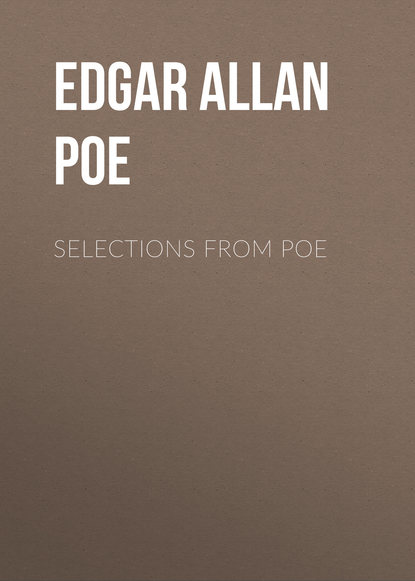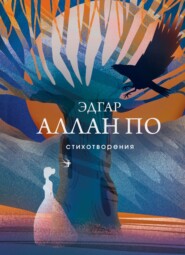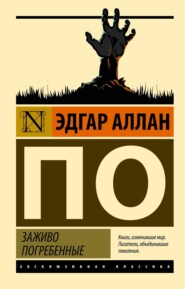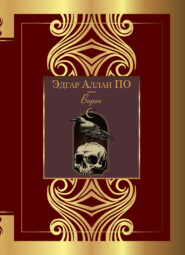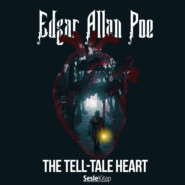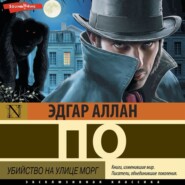По всем вопросам обращайтесь на: info@litportal.ru
(©) 2003-2025.
✖
Selections from Poe
Настройки чтения
Размер шрифта
Высота строк
Поля
"The disturbance in the street had been occasioned by the frantic behavior of a man with a musket. He had fired it among a crowd of women and children. It proved, however, to have been without ball, and the fellow was suffered to go his way as a lunatic or a drunkard. When he had gone, D – came from the window, whither I had followed him immediately upon securing the object in view. Soon afterwards I bade him farewell. The pretended lunatic was a man in my own pay."
"But what purpose had you," I asked, "in replacing the letter by a facsimile? Would it not have been better, at the first visit, to have seized it openly, and departed?"
"D – ," replied Dupin, "is a desperate man, and a man of nerve. His Hotel, too, is not without attendants devoted to his interests. Had I made the wild attempt you suggest, I might never have left the Ministerial presence alive. The good 30 people of Paris might have heard of me no more. But I had an object apart from these considerations. You know my political prepossessions. In this matter, I act as a partisan of the lady concerned. For eighteen months the Minister has had her in his power. She has now him in hers – since, being unaware that the letter is not in his possession, he will proceed with his exactions as if it was. Thus will he inevitably commit himself, at once, to his political destruction. His downfall, too, will not be more precipitate than awkward. It is all very well to talk about the facilis descensus Averni; but in all kinds of climbing, as Catalani said of singing, it is far more easy to get up than to come down. In the present instance I have no sympathy – at least no pity – for him who descends. He is that monstrum horrendum, an unprincipled man of genius. I confess, however, that I should like very well to know the precise character of his thoughts, when, being defied by her whom the Prefect terms 'a certain personage,' he is reduced to opening the letter which I left for him in the card-rack."
"How? Did you put anything particular in it?"
"Why – it did not seem altogether right to leave the interior blank – that would have been insulting. D – , at Vienna once, did me an evil turn, which I told him, quite good-humoredly, that I should remember. So, as I knew he would feel some curiosity in regard to the identity of the person who had outwitted him, I thought it a pity not to give him a clew. He is well acquainted with my MS., and I just copied into the middle of the blank sheet the words —
' – Un dessein si funeste,
S'il n'est digne d'Atrée, est digne de Thyeste.'
They are to be found in Crébillon's Atrée."
NOTES
The text followed both for poems and tales is that of the Stedman-Woodberry edition of Poe's Works, in which the editors followed, in most cases, the text of what is known as the "Lorimer Graham" copy of the edition of 1845, containing marginal corrections in Poe's own hand. Poe revised his work frequently and sometimes extensively. The following notes show, in most cases, the dates both of the first publication and of subsequent ones. Familiarity with the Introduction to this book will, in some cases, be necessary to an understanding of the notes. Gayley's "Classic Myths in English Literature" (Ginn & Company, $1.50) is the best reference work of small size for allusions to mythology, and should be available.
Both poems and tales are arranged in chronological order.
POEMS
SONG (Page 3)
Published in 1827, 1829, and 1845. The poem is believed to refer to Miss Royster, of Richmond, with whom Poe was in love as a boy of sixteen, shortly before he entered the University of Virginia. The young lady's father intercepted the correspondence, and Miss Royster soon became Mrs. Shelton. The blush, mentioned in lines 2, 9, and 14, is doubtless intended to imply shame for her desertion. The poem is commonplace, and shows little that is characteristic of the older Poe.
SPIRITS OF THE DEAD (Page 3)
Published in 1827 as "Visit of the Dead," and in 1829 and 1839 under the above title. It has been conjectured that this poem was inspired by the death of Mrs. Stannard (see Introduction, page xii).
TO – (Page 4)
The original, longer and addressed "To M – ," appeared in the edition of 1829, and was republished in 1845.
ROMANCE (Page 5)
Printed as a preface in 1829, and as an introduction in 1831; considerably revised and shortened, it appeared in 1843 and 1845 as "Romance."
11. condor years. The metaphor implies a likeness of time – the years – to a bird of prey. Cf. "condor wings" in "The Conqueror Worm."
19. forbidden things: i.e. "lyre and rhyme." What is the meaning?
TO THE RIVER – (Page 5)
Published first in 1829, afterwards in several magazines and in the edition of 1845.
TO SCIENCE (Page 6)
Published first in 1829, this poem appeared in editions of 1831 and 1845, and in magazines. It is a sonnet, differing from the Shakespearean form only in the repetition of the rhyme with "eyes."
9, 10, 12. In classical mythology, Diana is the moon goddess, Hamadryad, a wood nymph, Naiad, a water nymph. Consult Gayley's "Classic Myths." Explain the figures of speech.
13. Elfin: elf, a fairy, from the Anglo-Saxon, refers especially to tiny sprites, fond of mischief and tricks. But there were various kinds of elves, according to the Norse mythology. Consult Gayley's "Classic Myths." Explain the figure.
14. tamarind-tree: a beautiful, spreading, Oriental tree, with pinnate leaves and showy racemes of yellow flowers variegated with red. What does the line mean?
TO HELEN (Page 7)
Published in 1831, 1836, 1841, 1843, and 1845. Read comment in the
Introduction, pages xii and xxiii.
2. Nicæan barks. It is impossible to say exactly what this allusion means. Professor W.P. Trent aptly suggests that if "wanderer" in line 4 refers to Ulysses, as seems likely, "Phæacian" would have been the right word, since the Phæacians did convey Ulysses to Ithaca. Poe may have had that idea in mind and used the wrong word, or this may simply be a characteristically vague suggestion of antiquity. Point out similar examples of indefinite suggestion in this poem.
7. hyacinth hair: a favorite term with Poe. In "The Assignation" he says of the Marchesa Aphrodite, "Her hair … clustered round and round her classical head, in curls like those of the young hyacinth." The hair of Ligeia, in the story of that title, he calls "the raven-black, the glossy, the luxuriant and naturally-curling tresses, setting forth the full force of the Homeric epithet, 'hyacinthine.'"
8. Naiad airs: suggestive of exquisite grace. The Naiads, in classical mythology, are water nymphs, – lovely maidens presiding over brooks and fountains.
9, 10. Two of Poe's best and most frequently quoted lines. Explain the fitness of the epithets. Originally the lines read:
To the beauty of fair Greece
And the grandeur of old Rome.
Is the change an improvement? Explain.
14. Psyche: the Greek word for "soul," and also the name of a beautiful maiden whom Cupid himself loved and wedded. Read the story in Gayley's "Classic Myths."
ISRAFEL (Page 7)
Published in editions of 1831 and 1845, and several times in magazines. See comment in the Introduction, page xxiii. Poe derived the quotation through Moore's "Lalla Rookh," altered it slightly, and interpolated the clause, "whose heart-strings are a lute"; it is from Sale's "Preliminary Discourse" to the Koran.
12. levin, or leven: an archaic word for "lightning."
13. Pleiads, or Pleiades: a group of stars in the constellation Taurus; only six stars of the group are readily visible, but legend tells of a seventh, lost. Read the account of the ancient myth in Gayley's "Classic Myths."
23. skies: the object of "trod."
26. Houri: derived from an Arabian word meaning "to have brilliant black eyes." It is the name in Mohammedan tradition for beautiful nymphs of Paradise, who are to be companions of the pious.
THE CITY IN THE SEA (Page 9)
Published in 1831 as "The Doomed City," in 1836 as "The City of Sin," and several times in 1845 under the above title.
Point out examples of alliteration.
18. Babylon-like walls. The walls of the ancient city of Babylon, on the Euphrates, were famous for massiveness and extent.





